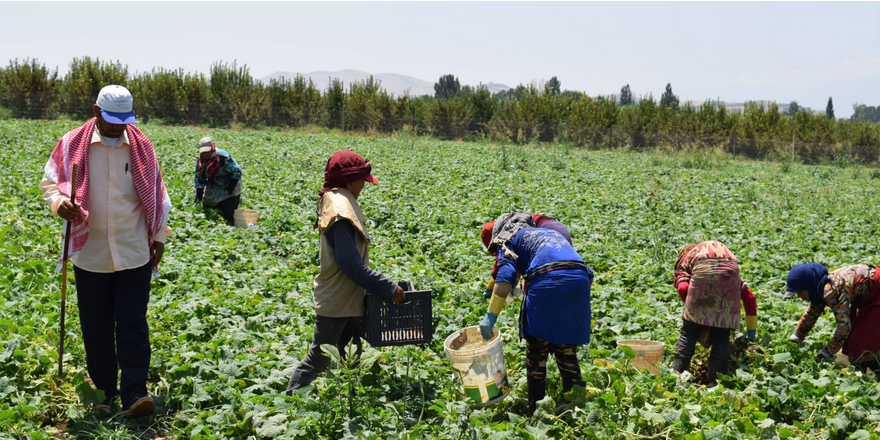
Newswrap: Halal industry
Indonesia ends palm oil export ban, but other country export bans remain; African Development Bank to provide $1.5 billion facility to Africa; ICARDA to develop crops to resist drought and salinity; Hershey’s opens R&D centre in Malaysia; UK’s Co-op supermarkets to stock Zinda Foods.
Indonesia ends palm oil export ban, but other country export bans remain
Indonesia overturned its three week ban on palm oil exports on Monday, reported the EconoTimes. “Based on the current supply and price of cooking oil and considering that there are 17 million workers in the palm oil industry, both working farmers and other supporting staff, I have decided that the export of cooking oil will reopen,” the Associated Press quoted President Jokowi as saying on Friday. The initial ban, in late April, was to try to prevent domestic cooking oil prices from rising.
While the move by the world’s largest palm oil producer will help to ease pressure on the global edible oil market, other countries food export bans remain in place, reported Firstpost. Earlier this month India banned the export of wheat, while Argentina put export caps on corn and wheat, Egypt (as of 12 March) banned exports of vegetable oil and corn for three months, and Iran banned indefinitely the export of potatoes, tomatoes, onions and aubergines. Serbia meanwhile has limited exports of wheat, corn, flour and cooking oil, while Turkey has banned various grains, beef, mutton, goat meat and butter, both until the end of 2022.
African Development Bank to provide $1.5 billion facility to Africa
The African Development Bank (AfDB) approved $1.5 billion to support African countries amid the rise in food prices, with the continent facing a shortage of 30 million tonnes this year, particularly crops, reported Reuters. The African Emergency Food Production Facility aims to support small-scale farmers to fill in the gap in food supplies caused by the Ukrainian-Russian war, protectionist measures, surging fuel costs and inflation. The facility will provide 20 million farmers with seeds and access to fertilisers. The aim is to produce 38 million tonnes, to $12 billion in production over the next two years. Wheat prices have increased 45% in the continent since February, while fertiliser prices have increased by a staggering 300%. Reuters reported that the AfDB facility will generate production of 11 million tonnes of wheat; 18 million tonnes of maize; 6 million tonnes of rice; and 2.5 million tonnes of soybeans.
ICARDA to develop crops to resist drought and salinity
The International Centre for Agricultural Research in the Dry Areas (ICARDA) is setting up a new initiative to bolster livestock and plant production, reported SciDev.Net. In partnership with the UN’s Food and Agriculture Organization (FAO), which has developed a Rapid Response Plan to support smallholder farmers, ICARDA aims to improve agricultural production, including improving soil quality, fisheries and agricultural guidance systems.
"The initiative is based on developing plants that tolerate drought and salinity, such as wheat, barley and chickpeas, through cross-breeding and transfer of genetic traits between different plants to benefit from them," said Aladdin Hamwieh, breeder, biotechnologist and Egypt country manager for ICARDA.
The World Food Programme (WFP) said that in 81 countries “acute hunger is expected to rise by 47 million people if the conflict in Ukraine continues unabated, with the steepest rises in Sub-Saharan Africa”. "This on top of the 276 million who already face acute hunger worldwide, meaning that up to 323 million people could face acute hunger in 2022," said James Belgrave, a WFP spokesperson, to SciDev.Net.
US confectionery producer Hershey’s opens R&D centre in Malaysia
Hershey’s has opened a research and development centre in Johor, Malaysia to “develop, test, and launch new products customized to consumers’ tastes in the AEMEA region (Asia Pacific, Europe, Middle East, and Africa), reported PRNewswire/AsiaOne. The US-based Hershey’s employs 19,000 worldwide, and has over 100 brands with annual revenues of $8.9 billion. The 10,400 square-foot facility in Johor will house R&D laboratories, a packaging development facility, and a sensory area, which will enable the company to partner with various innovation teams to taste-test and shortlist products.
UK’s Co-op supermarkets to stock halal food-to-go supplier Zinda Foods
UK-based Zinda Foods has secured a listing with 77 Co-op supermarkets across the country, reported Hospitality and Catering News. The halal-certified producer is to launch three variants of its chilled food-to-go wraps, which are also available at Tesco and Budgens & Londis stores. In March, Zinda Foods secure a “six figure growth investment to fund rapid expansion plans. This funding is part of a pre-seed round led by HVB 88 Angels, a US-based Angel Fund along with a US-based private investor,” its website stated. A further seed round is planned in May through a Singapore-based private equity fund.
